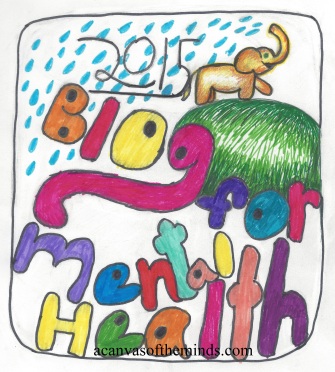
I’ve been thinking about the question that people often ask me about therapy–about how I can listen to people’s problems all day. I realized just a moment ago that there is something about being in the presence of suffering that is transformative; therapy changes both the client and the therapist in the process. It is a gift to have so many opportunities to take part in their personal growth.
Today I have a guest post from one of my favorite clients. He is truly wise beyond his years, and he is perhaps the best example I have seen of how much growth can come from pain and suffering. I was honored to be able to witness part of his transformation while he was in college.
***
Dr. Barongan, at the end of a few different sessions, asked me to write something for her blog. She said I could write on any subject of my choosing. I started several drafts, each with their own thesis, before realizing that the best topic comes from the title of this blog, “Normal-in-Training.” I like the title, because it’s aware of two related points essential to caring for oneself. The first comes from “Normal” – this suggests there is an expectation of what “normal” is and the second, the “in-Training,” denotes that the actualization of normalcy is always a work-in-progress.
Throughout my life, I have carried varying attitudes towards the state of my mental health. Sometimes, when I’m doing all the “right” things (eating healthily, exercising, etc.), it’s easy to feel good about myself. Other times, when I find myself slipping into “negative” behaviors (poor eating habits, not exercising, nicotine use, etc.) it’s easy to feel bad about myself. The obvious solution is to always be doing the right things. But, that’s easier said than done and unveils a harmful expectation of what one must be doing to feel good about oneself. I’m not suggesting one should not care about living a healthy life, but that creating a checklist of to-do’s in order to feel good isn’t healthy either. It’s sort of like creating a prison in one’s own mind or giving too much authority to the inner-critic we all know.
Part of caring for one’s mental health, I believe, is accepting one’s current situation. Right now, I’m in a situation where I am using lots of nicotine (not to mention caffeine) and not exercising, because my job leaves me little time and energy to workout which means I’ve turned to easier methods of perking myself up throughout the day (i.e. smoking, coffee). The critic in me sees this as a failure and commands me to wake up earlier, shortening my time for sleep, to workout. To quit tobacco cold turkey. To go on a strict diet and shed some of my chub. Only then, the critic says, will I deserve to feel good or “normal.”
The irony, however, is that even during the periods of life where I have done all the right things, I still haven’t totally achieved that normalcy I crave. Depressive thoughts still arise, suicidal ideation still becomes a problem. The point is that feeling good about oneself is always a work-in-progress, regardless of what type of lifestyle one has. Again, this does not mean one should just give up on living healthily, but rather that one must have a flexible spirit which allows happiness to not be tethered to an ascetic regimen of “you should do this” or “you need to do this” or “you ought to do this.” If I am feeling depressed, suicidal, I do need to reflect on my daily choices, but I also need to reflect on the external limitations my current situation (i.e. work) have on my freedom to do all those healthier things.
Lately, I’ve been feeling down. And, I get frustrated with myself for feeling down. My inner-critic says that all I need is a good kick in the ass to get me up and going. But, finding that sense of normalcy is about more than being hard on oneself. We do need that inner-critic, but we also need that inner-forgiver who is understanding and loving. Because there will always be circumstances where it’s too much to expect too much of ourselves. Normalcy can’t be limited to those expectations, because it’s unrealistic, abnormal to think the to-do’s will always be able to be checked off.
In a month, I will be in a very different situation than I am now. I will be home and have more time to do some of those healthy things. And even though I will do those healthy things, I’ll still have times when I’m feeling down like I am now. I’ll still have to care for myself, because that inner-critic can be a terrible master that is never satisfied. Normal can never be finished, completed. I’ll never reach a point where I say, “Ah, now I am normal, good.” It’s a constant work, (ironically) unique to each person.
“Love is patient, love is kind.” Note how patience comes first. We need to give ourselves time, all the time, a lifetime, to work towards normalcy and that’s love.
My advice for anyone who feels as though they aren’t doing all the things they are supposed to do, and feeling depressed about it, is to give themselves some slack and leniency. Normal looks different from one moment to the next. The “kick-in-the-ass” approach sounds good in theory, but not in practice. Because it assumes that normalcy is just a checklist of items away. And, that’s an assumption which deserves its own kick-in-the-ass.
Josh Gross is a graduate of Washington and Lee University, where he majored in philosophy and religion. He currently living in Black Mountain, NC. His plan is to become a writer and to help other people in difficult situations.






Like the part about “love is patient” being first. I find too that those who are patient with themselves have an easier time being patient with others. To those who would say they are simply not patient/accepting, I would respond that it is not something you are, but something you practice.
LikeLiked by 1 person
I agree. Patience is definitely a practice. Thanks for your comment!
LikeLike